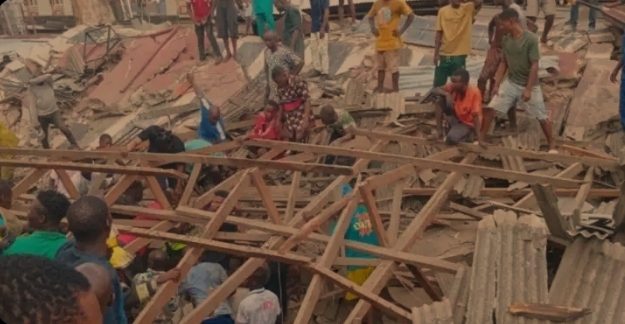A devastating incident occurred in the Papa Ajao area of Lagos on Sunday afternoon, where a mosque tragically collapsed during the afternoon prayers.
This catastrophic event has left the local community in distress, fearing for the lives of those inside the mosque at the time of the collapse.
The peaceful afternoon prayers turned into a scene of chaos and terror as the mosque suddenly gave way. Eyewitnesses reported that the structure collapsed abruptly, trapping numerous worshippers under the rubble.
Emergency services rushed to the scene, working tirelessly to rescue those buried beneath the debris.
As the rescue operations continue, several injured individuals have been pulled from the wreckage and transported to nearby hospitals for urgent medical care.
The exact number of casualties remains uncertain, but fears are growing as more people are believed to be trapped under the collapsed structure.
The full extent of the damage is yet to be determined, and the scene remains chaotic as authorities work to secure the area.
The collapse has left the Papa Ajao community in a state of shock and sorrow.
Many residents are struggling to comprehend the sudden disaster that has struck their place of worship.
The local community, known for its close-knit nature, has been profoundly affected, with many gathered around the site, anxiously awaiting news of their loved ones.
While the immediate focus remains on rescue and relief efforts, questions about the cause of the collapse are beginning to emerge.
It is currently unclear what led to the structural failure of the mosque, but an investigation is expected to be launched to determine the reasons behind this tragic incident.
Mosque collapse in Lagos
Lagos mosque disaster
Papa Ajao mosque tragedy











